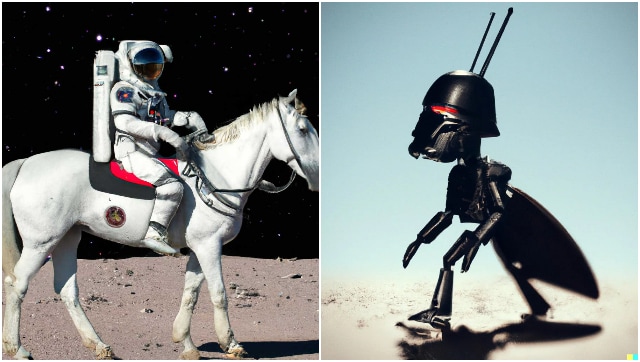OpenAI's image generator DALL-E is now open to the public, users can generate ‘quality art’ using keywords
Although the terms ‘Artificial Intelligence and ‘Machine Learning’ have been around for years now, for most people who do not have a vested interest in these technologies, these are just bizz words. Now though people will have the ability to see for themselves just how powerful these tech tools can be, all thanks to DALL-E, OpenAI’s image generator.

Up until now, access to OpenAI’s image synthesis tool, DALL-E was restricted by an invitation system only. Today, the platform has opened up the tool for everyone. That means anyone can sign up and use it.
DALL-E is a deep learning image synthesis model that has been trained on hundreds of millions of images pulled from the Internet. It uses a technique called latent diffusion to learn associations between words and images. As a result, DALL-E users can type in a text description or a textual prompt, and see it rendered visually as a 1024×1024 pixel image in almost any artistic style that the user chooses.
Apart from generating images from textual cues, DALL-E also includes a feature called “Outpainting” which allows you to upload an image and extend its borders using image synthesis. You can also merge several photos into one by generating a visual bridge between them.
In April this year, OpenAI premiered DALLE-2, which impressed a test audience of 200 researchers with its ability to generate near-photorealistic images and imitate the styles of various artists across epochs and generations. After gradually opening up to more users and placing a pricing model in July, more than 1.5 million users worldwide are now using DALL-E 2 to create more than 2 million images a day, according to OpenAI.
DALL-E is a commercial service, and it comes with some significant limitations. New users get 50 free credits, and you can purchase credits in groups of 115 for $15 apiece. Signing up requires providing a phone number in addition to other information. Images generated with DALL-E are owned by OpenAI, but the company grants users exclusive rights to “reproduce and display” their generations as long as they comply with the content policy.
from Firstpost Tech Latest News https://ift.tt/Xfo2czq
Comments
Post a Comment